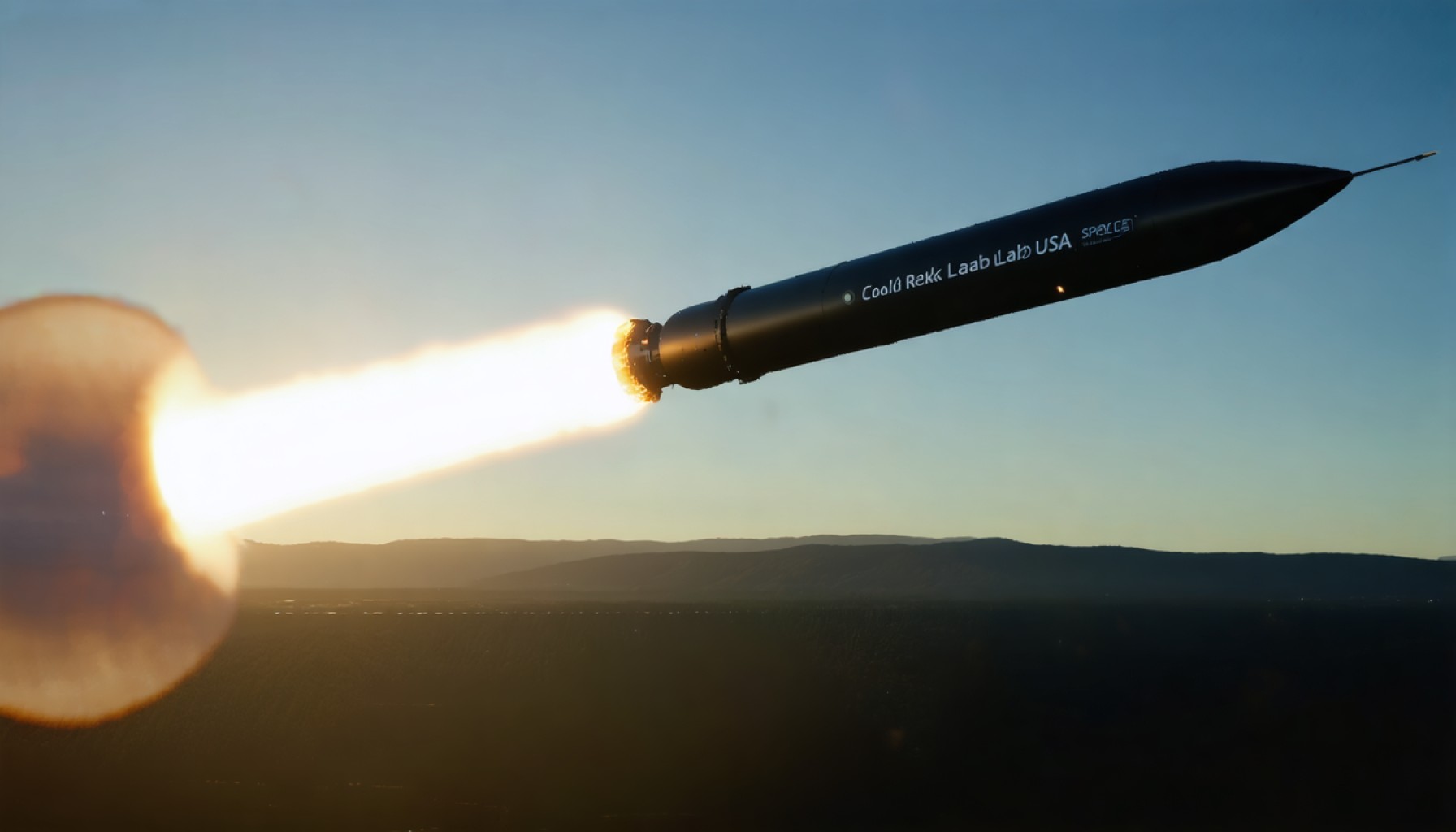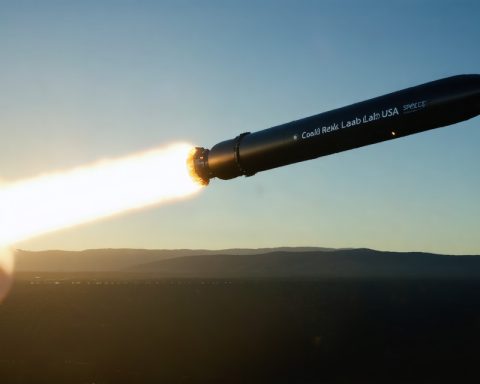- Rocket Lab USA has solidified its position as a major player in the U.S. launch market, second only to SpaceX.
- The company achieved a 60% increase in launches last year with its Electron rocket, boosting revenue by 65% to $304 million.
- Rocket Lab is expanding beyond launches, with its space systems division crafting spacecraft and components.
- The upcoming Neutron rocket aims to compete with SpaceX’s Falcon 9, potentially increasing revenue per launch sixfold.
- Despite growth, Rocket Lab is not yet profitable due to high research and development costs.
- The stock is priced high, reflecting optimism but also indicating potential volatility, with upcoming launches playing a crucial role.
- Rocket Lab presents a high-risk, high-reward opportunity for investors interested in the future of the space economy.
Amidst the cosmic canvas of the aerospace industry, Rocket Lab USA streaks across the sky, its momentum undeniable. Last year marked a triumph for the company, as its agile Electron rocket solidified its stance as a vital launch vehicle for small satellites. Beyond a mere player, Rocket Lab is now the second powerhouse in the U.S. launch market, sprinting just behind SpaceX.
The Electron’s repeated feats aren’t just technical wins; they signify a strategic conquest in frequency and affordability. Rocket Lab completed 16 missions last year, reflecting an impressive 60% surge in launches. This pipeline fuels its burgeoning revenue, which climbed to $304 million, a 65% leap. The growth isn’t limited to launches; the company’s space systems division thrives, crafting spacecraft and components, intertwining seamlessly with its core services.
Yet, the shadow of SpaceX looms large. With the Falcon 9’s titan muscles capable of hefting massive payloads, Rocket Lab’s Electron compares modestly. But innovation is on the horizon with Rocket Lab’s Neutron, a forthcoming launch vehicle, promising to challenge the Falcon 9 stature with its hefty payload capabilities. This endeavor could multiply revenue per launch sixfold.
Despite this ascent, Rocket Lab remains unprofitable, burdened by research and development costs. Its stock, reflecting investor optimism, is sky-high, trading at 38 times its trailing sales. Potential investors should brace for volatility; the Neutron rocket’s launch timeline will be crucial.
For investors with a keen eye on the stars and a stomach for risk, Rocket Lab offers an exhilarating ride into the space economy’s future. As the company strives to align its trajectory with SpaceX’s success, its upcoming moves could redraw the celestial maps of space exploration investment.
Why Rocket Lab Could Be the Next Game-Changer in Space Exploration
How Rocket Lab Is Transforming the Aerospace Industry
How-To Steps & Life Hacks: Investing in Space Technology
1. Research the Space Industry: Understand key players like Rocket Lab and SpaceX. Read market reports and follow industry news.
2. Analyze Financials: Study Rocket Lab’s revenue growth, investment in R&D, and plans for future vehicles like Neutron.
3. Assess Risks: Consider market volatility factors, including competition from larger companies and technological uncertainties.
4. Diversify Investments: Balance your portfolio by investing in various technology sectors rather than focusing solely on aerospace.
Real-World Use Cases
Rocket Lab’s Electron rocket has become essential for launching small satellites, which are pivotal in global communications, earth observation, and scientific research. Its cost-effectiveness and reliability make it attractive for governments and private sector companies alike.
Market Forecasts & Industry Trends
As the aerospace industry races toward privatization and commercialization, Rocket Lab fits into an anticipated growth spurt. According to estimates, the global space economy could surge to $1 trillion by 2040, propelled by ventures like satellite internet and space tourism. Rocket Lab, with its Electron and upcoming Neutron rockets, is well-positioned for these opportunities.
Reviews & Comparisons
Compared with SpaceX’s Falcon 9, the Electron is a nimble and cost-effective choice for smaller payloads. While Falcon 9 dominates with its heavy payload capacity, Electron’s frequent flights and lower costs stand out. The future Neutron rocket could bring Rocket Lab closer in capability to the Falcon 9, potentially evening the playing field.
Controversies & Limitations
While Rocket Lab excels in many areas, it struggles with profitability, largely due to high R&D expenses. The Electron rocket’s capacity limits its market in favor of larger competitors like SpaceX. Investors must remain cautious about fluctuating stock prices and technological hurdles in launching Neutron.
Features, Specs & Pricing
– Electron Rocket: Supports payloads up to 300 kg; priced around $7.5 million per launch.
– Neutron Rocket (upcoming): Aims to carry heavy payloads, significantly increasing potential revenue per launch.
Security & Sustainability
Rocket Lab is pioneering reusable rocket technology similar to SpaceX, aiming to reduce costs and environmental impact. It has already conducted successful recovery missions, showcasing its commitment to sustainability.
Insights & Predictions
Rocket Lab’s future hinges on the development and success of the Neutron rocket. If successful, this could catapult the company as a serious contender against heavyweights like SpaceX. Innovations in reusable space systems and partnerships may further propel Rocket Lab’s market reach.
Tutorials & Compatibility
Rocket Lab offers in-depth resources and consultations for clients interested in launching with Electron or preparing for Neutron capabilities. These services can be crucial for satellite developers seeking affordable and reliable launch solutions.
Pros & Cons Overview
Pros
– Flexible and cost-effective launches
– Strong growth trajectory
– Upcoming Neutron rocket could diversify offerings
Cons
– Current payload limitations
– Uncertain profitability due to R&D costs
– Market volatility risk
Actionable Recommendations
1. Stay updated on Rocket Lab’s Neutron rocket developments.
2. Consider diversifying investments in related tech sectors.
3. Evaluate long-term potential vs. short-term market volatility.
For more information on the aerospace industry, you can explore SpaceX for competitive insights and market trends.
Rocket Lab offers an enticing but volatile investment opportunity in the rapidly expanding space economy. Investors should stay informed and cautiously optimistic about its innovations and market position.









